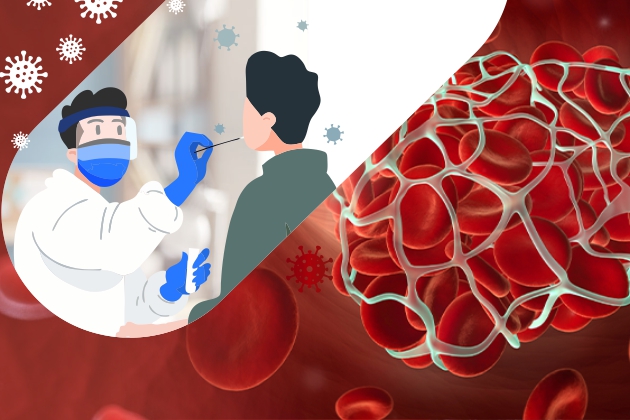

D-Dimer: A Critical Inflammatory Biomarker
D-dimer is a protein present in the process of eradication of blood clots during tissue injury. However, in certain diseased conditions or cases of inflammation, the blood clots are formed recurrently and cannot be removed. The conditions require immediate medical attention for being life-threatening. The D-dimer test often characterizes diagnostic confirmation of such conditions, associated with a higher level of these biomarkers. Lately, studies have confirmed a direct correlation of elevated levels of the same, proposing the importance of D-Dimer and COVID-19 tests during a pandemic for early recovery through inflammation.
Elevated D-Dimer Levels During SARS-CoV-2 Infection: What Does it Indicate?
During tissue injury and/or inflammatory conditions, our body has to undergo a series of pathophysiological changes. As a part of the healing mechanism, one of the changes involves the clotting of blood to stop internal bleeding. However, it is important to understand that during this process, we must remove the blood clots immediately. They can hamper blood circulation to vital organs of the body, leading to ischemia and death.
In this regard, D-dimer is a very critical protein. It is part of the process of blood clotting and further removing them through the process of dissociation. A higher level of this critical biomarker indicates the formation of too many blood clots. This condition can be life-threatening if not treated on time. There is no presence of specific consensus to assess D-dimer levels and management of COVID-19 patients. Clinical studies have indicated that these tests can rule out the chances of ischemia and/or venous thromboembolism. According to recent studies, there is a correlation between the D-dimer levels greater than 1 µg/ml and deaths amongst patients suffering from COVID-19. Interestingly, higher levels of D-dimer also indicate other conditions like malignancy, liver disorders, stroke, trauma, etc. Hence, it is always advisable to perform these tests under expert guidance.
Thus, in a nutshell, increased levels of some specific biomarkers including D-dimer are indicative of serious inflammation and/or cytokine storm in patients with COVID-19; and are dangerous. These tests are important for timely administration of anti-inflammatory as well as anti-coagulant drugs to remove the blood clots formed in the lungs and also the chances of respiratory failure. After all early diagnosis is a key to a speedy recovery.






